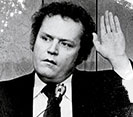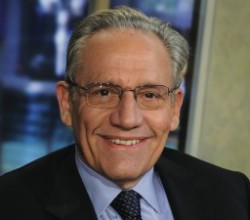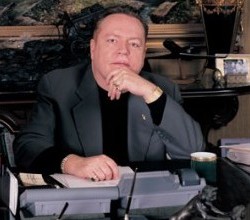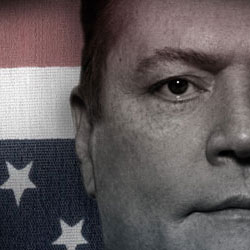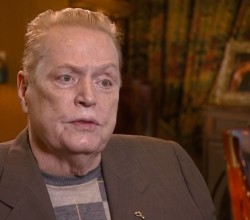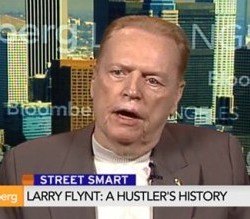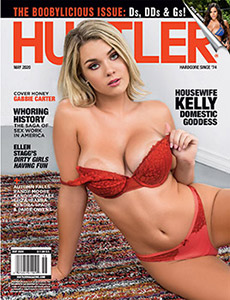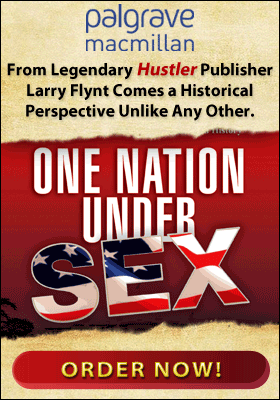Jazz Is Still Kickin’
MOST AMERICANS DIG OTHER KINDS OF MUSIC, BUT THE ONE SYMBOLIZING FREEDOM WILL NEVER BE SILENCED.
by Nat Hentoff
I began reporting on jazz and knowing its key players in the late 1940s, also learning life lessons from them ever since. Tenor saxophonist Ben Webster advised, “Listen, kid, when the rhythm section ain’t making it, go for yourself!” I’ve done that in hassles with editors and wives.
Obituaries for my favorite musical genre began when rock overran jazz’s popular big-band period (Benny Goodman, et al), and they keep marching on. Benjamin Schwarz recently added one in The Atlantic: “The End of Jazz: How America’s Most Vibrant Music Became a Relic.”
Such a relic that jazz combos are still booked around the world. For example—I kid you not—in Siberia. Meanwhile, Jazz Times magazine reported that UNESCO (the United Nations Educational, Scientific and Cultural Organization) has “officially designated International Jazz Day…to highlight jazz and its diplomatic role of uniting people in all corners of the globe every April 30.” As jazz legend Duke Ellington (1899-1974) marveled, “The music is so free that many people say it is the only unhampered, unhindered expression of complete freedom yet produced in this country.”
So how come these grimly misinformed obituaries keep blowing clinkers only in America? “Kids here just aren’t interested in this music anymore,” they lament, “so its audience keeps on dwindling.”
Really? There are more and more high school jazz bands nationwide, and many of them participate in the Jazz at Lincoln Center’s Essentially Ellington support program and annual competition. Among those impressing the judges is the jazz band at my alma mater, Boston Latin School.
When I attended BLS in the 1940s, jazz was never mentioned and certainly never performed. During a visit there many years later, I delighted in its band’s swinging rendition of Ellington’s “Things Ain’t What They Used to Be.” Later I told the young musicians that Duke would have been very pleased. They were stunned that I was so old, I had actually known the jazz icon.
And I was stunned at what I heard at the 2012 Mingus High School Competition & Festival at New York City’s Manhattan School of Music. I had been told by established jazz musicians that Charles Mingus’s repertoire would be too difficult for high school jazz bands to play. Well, they not only wowed me but also John Thomas Dodson, conductor of the Adrian (Michigan) Symphony Orchestra.
After one band went lights out with “Haitian Fight Song” and “Better Git It in Your Soul,” Dodson posted on his Mingus Lives blog: “I’m guessing that many of the high-school students had never even heard of Charles Mingus before they began to work their minds, ears and instruments around his music. By now, his work has become a part of them.”
I advise the authors of jazz obituaries to also wake up to Jazz House Kids in Montclair, New Jersey. As noted on its website, this community based organization “provides the framework for students to cultivate the talent, discipline, skills and principles they need to play, sing and appreciate America’s original musical art form.” Mike Lee, head of music instruction at Jazz House Kids, notes that some of its most advanced student musicians “range in age from nine to a grand old 12.” Too young for obituaries?
Since my three lifelong vocations are education, jazz and the Constitution, I’ll proudly mention my kinship with the late jazz percussionist and composer Max Roach. In 1960, as the civil rights movement was gaining momentum, I was A&R director at Candid Records when it released his album We Insist! Max Roach’s Freedom Now Suite. “You write a lot about the Constitution,” Max told me years ago. “So ours are individual [jazz] voices listening intently to all the other voices. That’s how the Constitution works.”
Whether or not We the People still have a living Constitution after Bush and Cheney and, more damagingly, Obama, I have many immor tal reasons to rejoice: Max Roach, Duke Elling ton, Louis Armstrong, Charlie Parker, Sidney Bechet, James Moody, Billie Holiday and all the other creators of the spirit-lifting, thought-provoking life force this country has given the world.
Even if jazz, like our personal liberties, becomes another casualty of Americans’ apathy, this freedom music will keep on living around the globe anyway. As Sidney Bechet told me, “You can’t keep this music down wherever it wants to go.”

